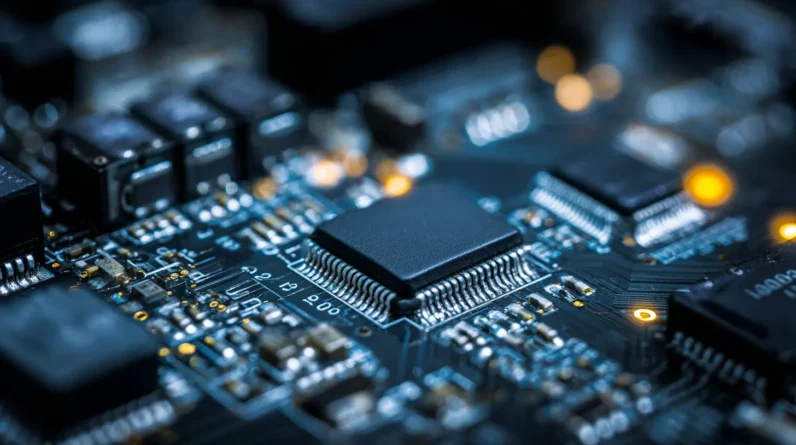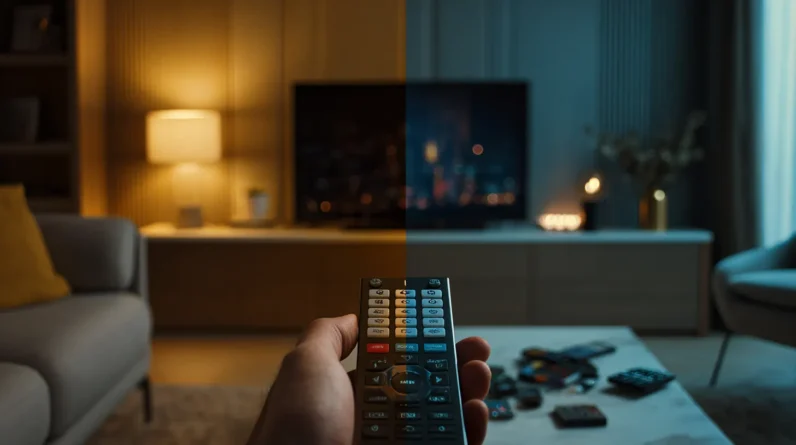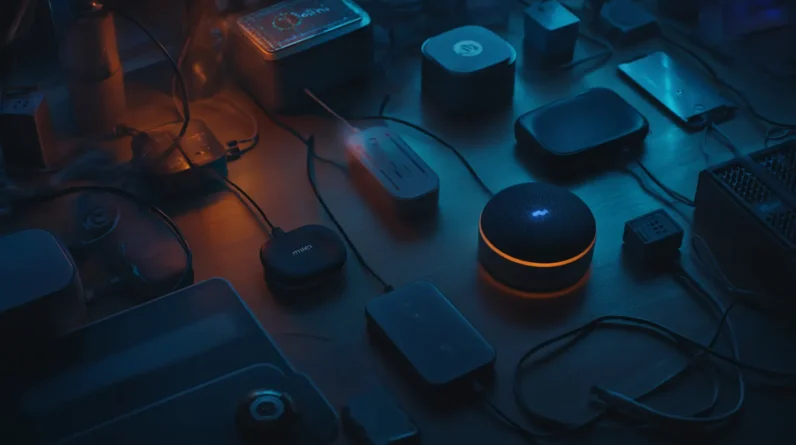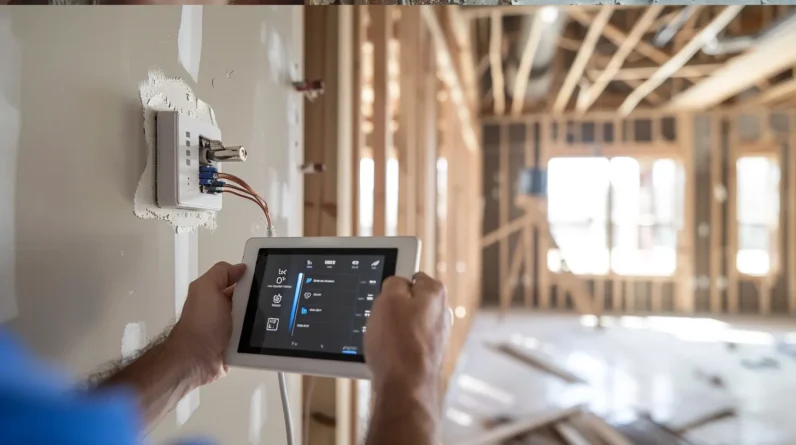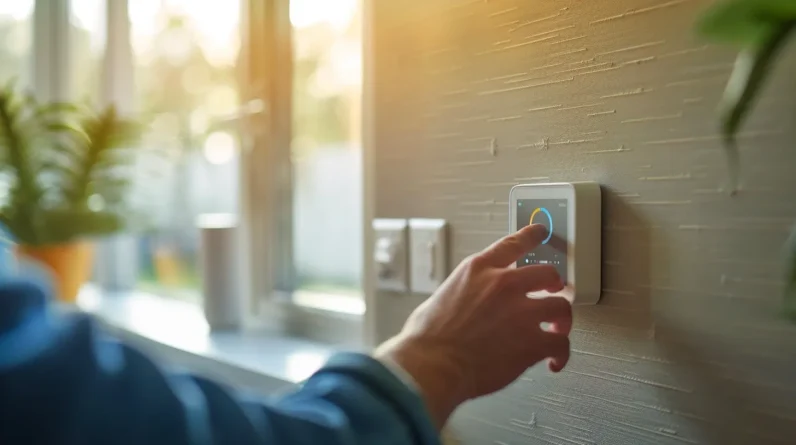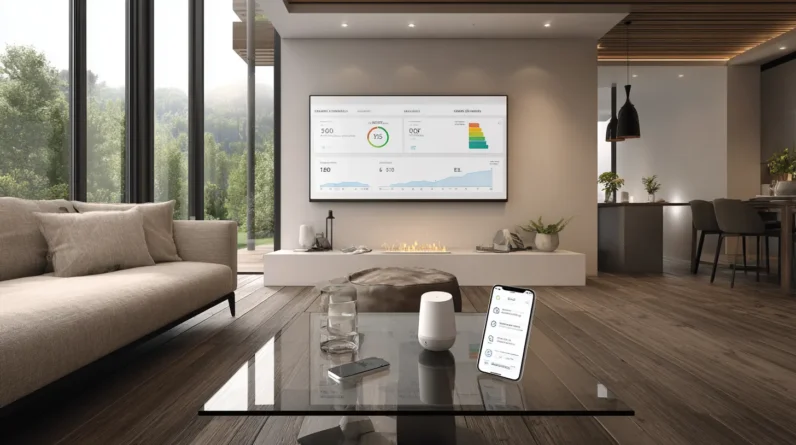
We’ll explore how a smart home ecosystem can boost your home’s efficiency. From smart thermostats that intelligently control your climate to lighting solutions that slash energy use, you’re in good hands. We’ll also dig into smart plugs, appliances, and water systems that optimize your resources. Join us to uncover how these innovations can transform your living space into a model of efficiency and sustainability. Let’s set out on this journey to smarter living together.
Understanding the Basics of a Smart Home Ecosystem
To truly grasp the fundamentals of a smart home ecosystem, let’s start by defining what it is. A smart home ecosystem is a network of interconnected devices and appliances that work together to automate and optimize various aspects of your home. At its core, this ecosystem relies on smart sensors and home automation technology to collect data, communicate with each other, and make intelligent decisions based on your preferences and habits.
Leveraging this technology, you can create a more efficient, comfortable, and secure living environment that adapts to your needs and lifestyle. As we dig deeper into the world of smart homes, you’ll discover how these innovative solutions can transform the way you interact with your living space.
Integrating Smart Thermostats for Optimal Climate Control
As we explore the integration of smart thermostats for ideal climate control, recognizing the importance is vital to acknowledge the significant impact they can have on our home’s comfort and energy efficiency. By leveraging advanced thermostat calibration and heating optimization techniques, we can precisely tailor our HVAC system’s performance to our preferences and schedules.
This not only guarantees that we’re always comfortable when at home, but also minimizes energy waste when we’re away. With features like geofencing and adaptive learning, smart thermostats offer an unparalleled level of convenience and efficiency, making them an essential addition to any modern, eco-friendly household.
Leveraging Smart Lighting Solutions for Energy Savings
While we’re discussing home efficiency improvements, it’s essential to think about the impact of smart lighting solutions. These advanced lighting systems offer more than just illumination; they provide us with the ability to customize our environment while substantially reducing energy consumption. By adjusting color temperatures and brightness levels to suit our needs at different times of the day, we can create the perfect ambiance in our homes.
Smart lighting can be scheduled or controlled remotely, ensuring lights are only on when needed. As we explore deeper into creating a more efficient home, integrating these intelligent lighting solutions becomes a pivotal step towards achieving our goals.
Implementing Smart Plugs and Appliances for Efficient Power Management
Smart plugs and appliances are the next frontier in our quest for a more energy-efficient home. By integrating these devices into our households, we can take control of our energy consumption like never before.
Smart plugs allow us to monitor and manage the power usage of individual devices, while smart appliances offer energy optimization features that adapt to our schedules and preferences. Together, they create a dynamic ecosystem that minimizes waste and maximizes efficiency.
With real-time power monitoring and intelligent automation, we can identify and eliminate energy-draining habits, ultimately reducing our carbon footprint and lowering our utility bills. It’s a win-win situation for both our wallets and the environment.
Utilizing Smart Water Systems for Conservation and Efficiency
In addition to smart plugs and appliances, we can further enhance our home’s efficiency by incorporating smart water systems. These systems, equipped with water sensors and leak detectors, allow us to monitor and manage our water consumption effectively.
Identifying leaks early, we can prevent water wastage and potential damage to our homes. Additionally, smart water systems provide real-time data on our water usage, enabling us to make informed decisions about our consumption habits. With this knowledge, we can adjust our behavior and implement water-saving strategies, such as installing low-flow fixtures or optimizing irrigation schedules.
Conclusion
As we embrace the smart home revolution, we’re not just saving money—we’re weaving a tapestry of efficiency, comfort, and sustainability. By integrating smart thermostats, lighting, plugs, and water systems, we orchestrate a symphony of savings that not only benefits our wallets but also the planet. So, let’s continue to dance to the beat of innovation, creating homes that are not just smart, but also harmonious with our environment and our future.


